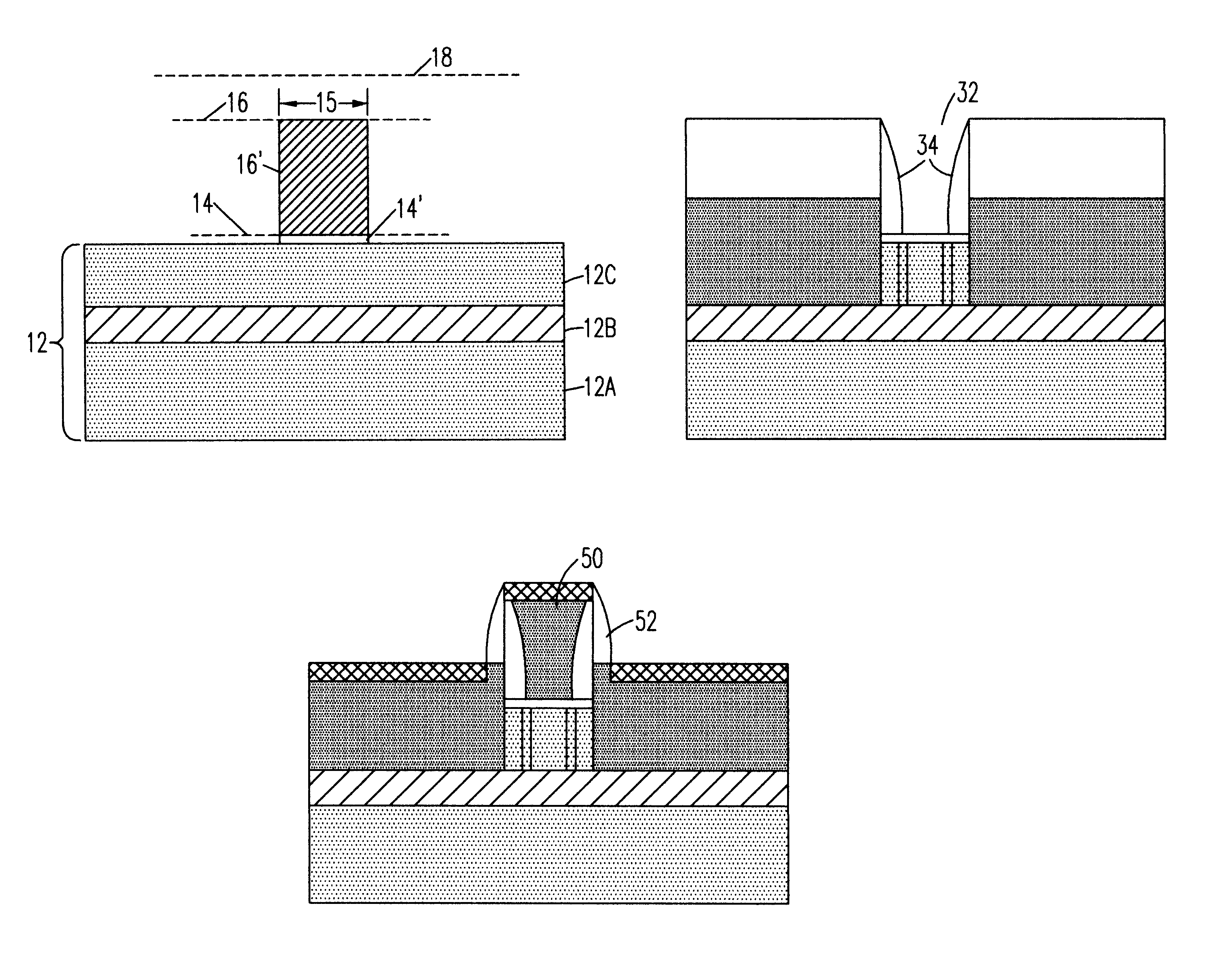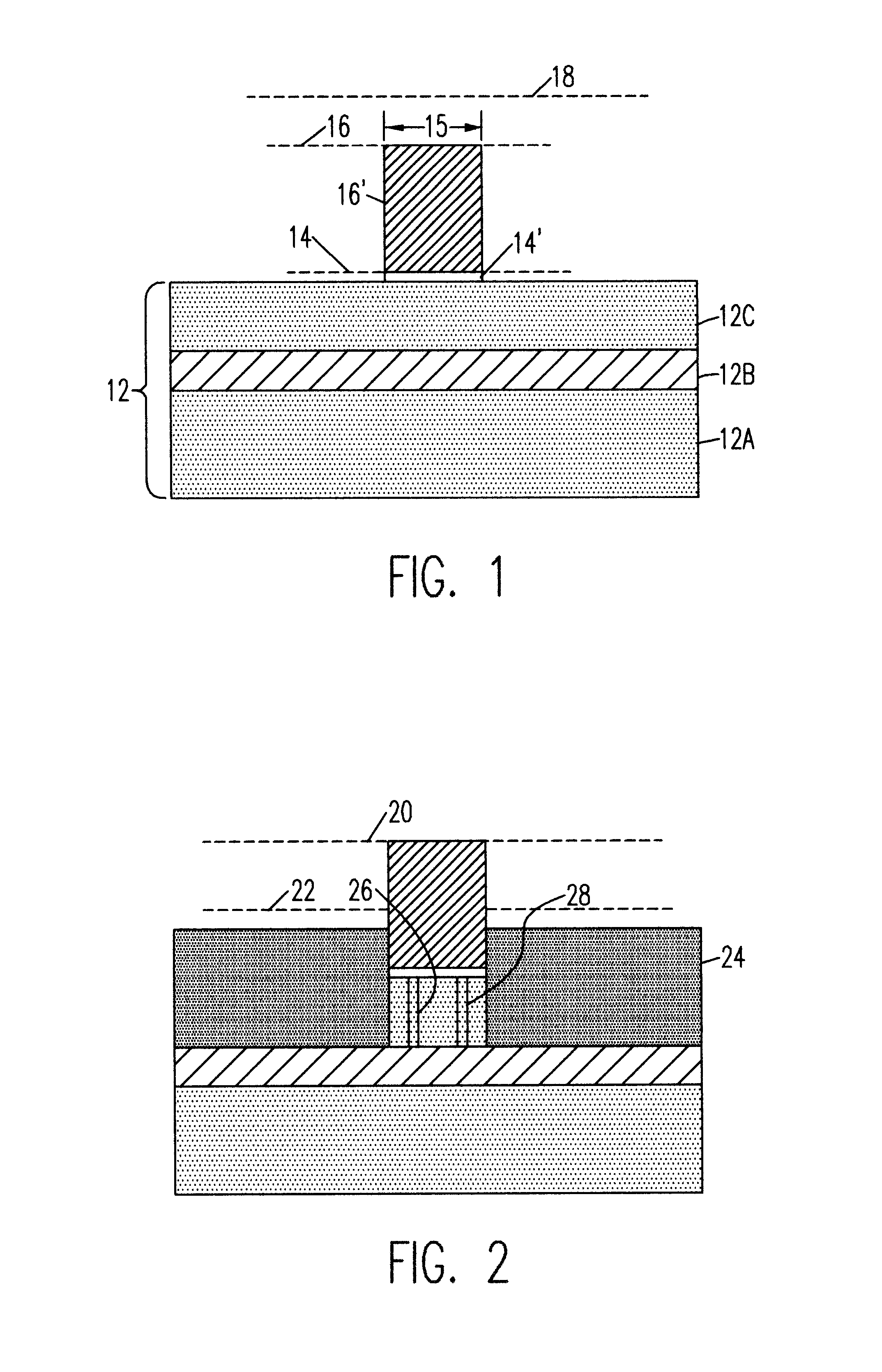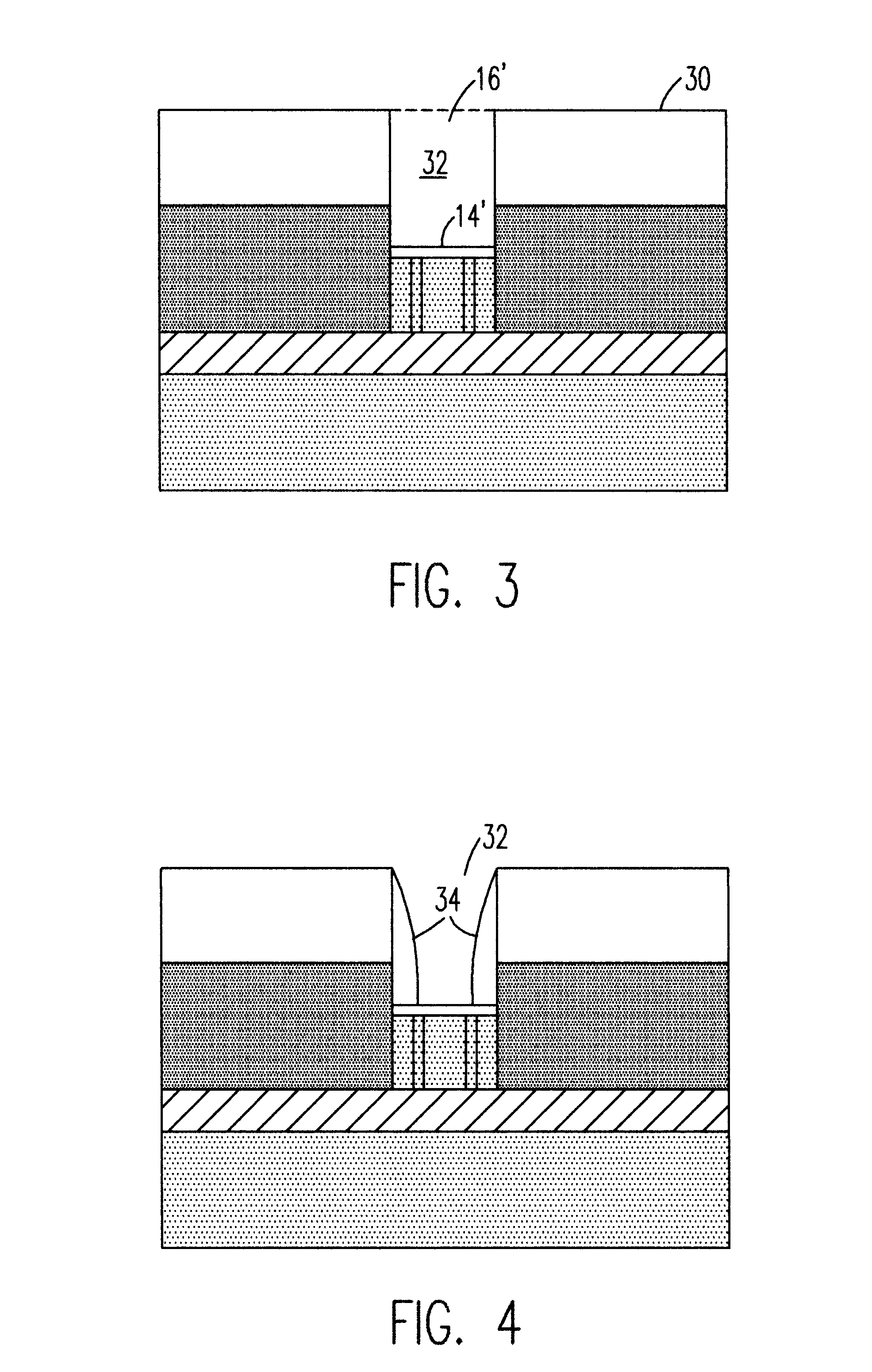Polysilicon doped transistor using silicon-on-insulator and double silicon-on-insulator
a polysilicon and transistor technology, applied in transistors, electrical devices, semiconductor devices, etc., can solve the problems of reducing the active device dimension, limiting the performance which can be obtained, and difficulty in scaling semiconductor structures
- Summary
- Abstract
- Description
- Claims
- Application Information
AI Technical Summary
Benefits of technology
Problems solved by technology
Method used
Image
Examples
Embodiment Construction
Referring now to the drawings, and more particularly to FIG. 1, there is shown, in cross-sectional view, an initial stage in the fabrication of a field effect transistor in accordance with the invention. It should be understood that while the invention will be described assuming SOI and double SOI technology, as is currently considered to be preferred for some applications, it is also applicable to other semiconductor materials such as germanium and Group III-V materials and combinations or alloys thereof such as SiGe on insulator. It should also be understood that layer 12 is a composite of three layers depicted as a bulk material or handling substrate 12a, a bottom or buried oxide (or other insulator) layer 12b and an SOI layer 12c.
A thin pad oxide layer 14 is deposited or grown to a thickness of about 8 nm on SOI layer 12c. This pad oxide could be left in the device as a gate oxide but it is preferred to later remove and reform it to increase reliability, uniformity and manufactu...
PUM
| Property | Measurement | Unit |
|---|---|---|
| thickness | aaaaa | aaaaa |
| thickness | aaaaa | aaaaa |
| depth | aaaaa | aaaaa |
Abstract
Description
Claims
Application Information
 Login to View More
Login to View More - R&D
- Intellectual Property
- Life Sciences
- Materials
- Tech Scout
- Unparalleled Data Quality
- Higher Quality Content
- 60% Fewer Hallucinations
Browse by: Latest US Patents, China's latest patents, Technical Efficacy Thesaurus, Application Domain, Technology Topic, Popular Technical Reports.
© 2025 PatSnap. All rights reserved.Legal|Privacy policy|Modern Slavery Act Transparency Statement|Sitemap|About US| Contact US: help@patsnap.com



